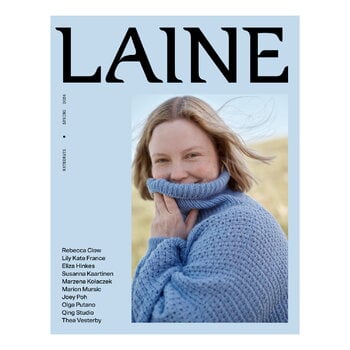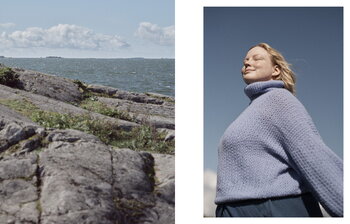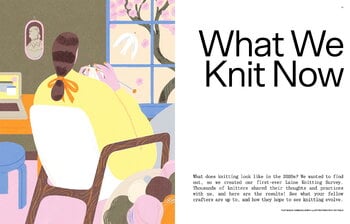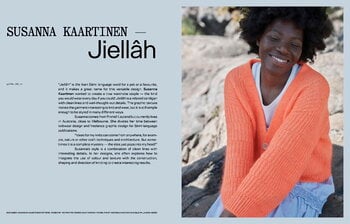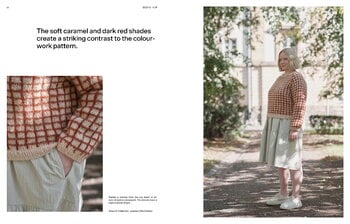Laine Magazine contains knitting tips, interesting articles and stories from the world of wool, inspiring interviews, and seasonal recipes. The magazine is published three times per year, in both English and Finnish.
In the 20th issue of the magazine (spring 2024), we meet Afro-Finnish knitwear designer Jenny Ansah, explore the results of the first-ever Laine Knitting Survey and much more. The Five Ways series examines how artificial intelligence can change knitting in the future, while the Where I Knit introduces us to Sascha Faxe, a Danish MP. What's more, the magazine includes a total of 10 spring-time knitting patterns: 5 sweaters, 1 cardigan, 1 tee, 2 shawls and 1 pair of socks.
Our lovely spring issue Laine 20, Waterways, invites you to spend a day by the sea with us. The issue includes ten beautiful and unique knits perfect for the season: the kind that will keep you warm on the first spring days when you can’t get enough of the outdoors but still need that extra layer to keep you warm.
Designers featured in this issue: Rebecca Clow, Lily Kate France, Eliza Hinkes, Susanna Kaartinen, Marzena Kołaczek, Marion Mursic, Joey Poh, Olga Putano, Qing Studio and Thea Vesterby.
